The Right Time To Pick A Cantaloupe - How And When To Pick Cantaloupe
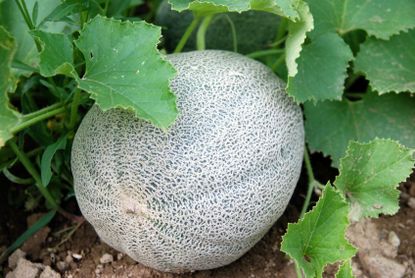

Knowing the right time to pick a cantaloupe can mean the difference between a good crop and a bad one. So you want to pick some cantaloupe but you're not quite sure how or when to go about it. If you harvest too soon, you'll be left with a hard, tasteless, or bitter melon, as the sugars haven't had sufficient time to develop and fully sweeten. And once they're picked, they won't continue to ripen. However, if you harvest your cantaloupe too late, you'll be stuck with fruit that is soft, watery, and mushy.
When Can I Harvest Cantaloupe?
Knowing when to pick cantaloupe is not as difficult as one might think. In fact, most cantaloupes are ready to be picked once they're fully ripened, changing from green to a tan or yellowish-gray color between the netting. A ripe melon will also exhibit a sweet and pleasant aroma. One way to tell if a melon is overripe is by looking at the rind, which will appear quite yellow and soft. So then, "When can I harvest cantaloupe?" you ask. Typically, cantaloupes should be ready for harvesting anywhere from 70-100 days after planting. In addition, a ripe cantaloupe will not require tugging or pulling in order to harvest it from the vine. Instead, it will easily slip from the vine with little help. There may also be a crack near the point of attachment and the stem will become brown.
How to Pick Cantaloupe
Once your cantaloupe is ready to be harvested from the vine, it helps to know how to pick it. If it's ripe enough, the melon should separate easily from the vine with a light touch. However, on occasion, you may come across one that is stubborn. In this case, the melon should not be pulled but carefully cut from the vine. Pulling may result in damage to the melon, which can lead to disease and poor quality fruit. Harvesting your cantaloupes is a rather easy task once you know when and how to do it correctly.
Gardening tips, videos, info and more delivered right to your inbox!
Sign up for the Gardening Know How newsletter today and receive a free download of our most popular eBook "How to Grow Delicious Tomatoes."

Nikki Tilley has been gardening for nearly three decades. The former Senior Editor and Archivist of Gardening Know How, Nikki has also authored six gardening books.
-
 Urban Composting Guide: How To Compost In The Middle Of The City
Urban Composting Guide: How To Compost In The Middle Of The CityUrban composting does not have to be daunting. You can compost in the city, and maybe even try some urban worm composting!
By Mary Ellen Ellis
-
 Shrub Diseases And Pests To Watch Out For
Shrub Diseases And Pests To Watch Out ForShrub diseases and pests can be challenging. Learn how to recognize and eradicate them before they can present a danger to your plants.
By Susan Albert
-
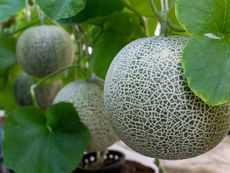 How To Prune Cantaloupe Vines: Is Cutting Back Cantaloupes Effective
How To Prune Cantaloupe Vines: Is Cutting Back Cantaloupes EffectiveCutting back cantaloupe plants is generally not necessary, although pruning cantaloupe plants does have some benefits. Click here to learn more.
By Amy Grant
-
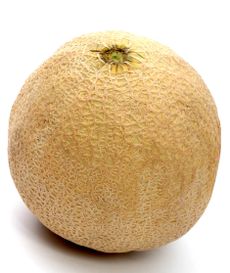 Athena Melon Fruit: What Is An Athena Melon Plant
Athena Melon Fruit: What Is An Athena Melon PlantAthena melon fruit are cantaloupe hybrids prized for their consistent early yields as well as for their ability to store and ship well. Interested in growing Athena melons? Click the following article to learn about the growing and care of Athena melons.
By Amy Grant
-
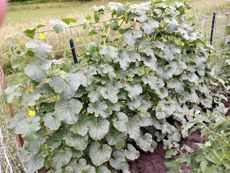 Cantaloupe On A Trellis: How To Grow Cantaloupes Vertically
Cantaloupe On A Trellis: How To Grow Cantaloupes VerticallyTrellised cantaloupes utilize a much smaller portion of the garden, allowing even those with limited space to grow their own. Intrigued? Click on the following article to find out how to grow cantaloupes vertically and other information.
By Amy Grant
-
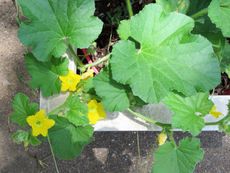 Container Grown Cantaloupe: Care Of Cantaloupe In Pots
Container Grown Cantaloupe: Care Of Cantaloupe In PotsCan I grow cantaloupes in a container garden? This is a common question, and space-challenged melon lovers are happy to learn that the answer is a resounding yes, you can grow cantaloupe in pots with proper growing conditions. Click here for more info.
By Mary H. Dyer
-
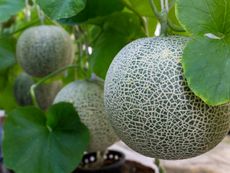 Planting Cantaloupe - How To Grow Cantaloupe Melons
Planting Cantaloupe - How To Grow Cantaloupe MelonsThe cantaloupe plant, also known as muskmelon, is a popular melon that is commonly grown in many gardens. Learning how to grow them successfully is easy using the following information.
By Nikki Tilley